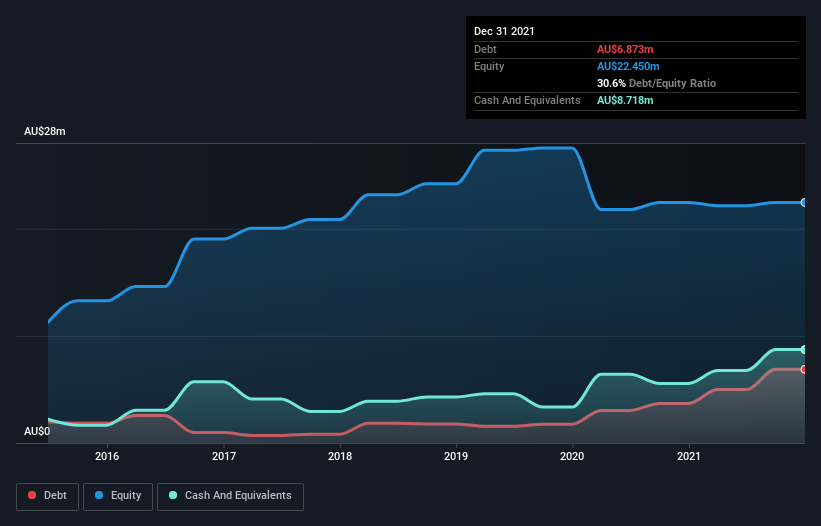Is Compumedics (ASX:CMP) Weighed On By Its Debt Load?
David Iben put it well when he said, 'Volatility is not a risk we care about. What we care about is avoiding the permanent loss of capital.' So it might be obvious that you need to consider debt, when you think about how risky any given stock is, because too much debt can sink a company. We note that Compumedics Limited (ASX:CMP) does have debt on its balance sheet. But should shareholders be worried about its use of debt?
When Is Debt A Problem?
Debt and other liabilities become risky for a business when it cannot easily fulfill those obligations, either with free cash flow or by raising capital at an attractive price. In the worst case scenario, a company can go bankrupt if it cannot pay its creditors. However, a more frequent (but still costly) occurrence is where a company must issue shares at bargain-basement prices, permanently diluting shareholders, just to shore up its balance sheet. Having said that, the most common situation is where a company manages its debt reasonably well - and to its own advantage. The first step when considering a company's debt levels is to consider its cash and debt together.
See our latest analysis for Compumedics
What Is Compumedics's Debt?
You can click the graphic below for the historical numbers, but it shows that as of December 2021 Compumedics had AU$6.87m of debt, an increase on AU$3.69m, over one year. But it also has AU$8.72m in cash to offset that, meaning it has AU$1.85m net cash.
How Strong Is Compumedics' Balance Sheet?
According to the last reported balance sheet, Compumedics had liabilities of AU$16.5m due within 12 months, and liabilities of AU$683.0k due beyond 12 months. Offsetting these obligations, it had cash of AU$8.72m as well as receivables valued at AU$10.9m due within 12 months. So it actually has AU$2.37m more liquid assets than total liabilities.
This short term liquidity is a sign that Compumedics could probably pay off its debt with ease, as its balance sheet is far from stretched. Simply put, the fact that Compumedics has more cash than debt is arguably a good indication that it can manage its debt safely. The balance sheet is clearly the area to focus on when you are analysing debt. But you can't view debt in total isolation; since Compumedics will need earnings to service that debt. So if you're keen to discover more about its earnings, it might be worth checking out this graph of its long term earnings trend.
In the last year Compumedics's revenue was pretty flat, and it made a negative EBIT. While that hardly impresses, its not too bad either.
So How Risky Is Compumedics?
We have no doubt that loss making companies are, in general, riskier than profitable ones. And the fact is that over the last twelve months Compumedics lost money at the earnings before interest and tax (EBIT) line. And over the same period it saw negative free cash outflow of AU$16k and booked a AU$31k accounting loss. With only AU$1.85m on the balance sheet, it would appear that its going to need to raise capital again soon. Even though its balance sheet seems sufficiently liquid, debt always makes us a little nervous if a company doesn't produce free cash flow regularly. There's no doubt that we learn most about debt from the balance sheet. However, not all investment risk resides within the balance sheet - far from it. Case in point: We've spotted 3 warning signs for Compumedics you should be aware of, and 1 of them is a bit concerning.
If, after all that, you're more interested in a fast growing company with a rock-solid balance sheet, then check out our list of net cash growth stocks without delay.
Have feedback on this article? Concerned about the content? Get in touch with us directly. Alternatively, email editorial-team (at) simplywallst.com.
This article by Simply Wall St is general in nature. We provide commentary based on historical data and analyst forecasts only using an unbiased methodology and our articles are not intended to be financial advice. It does not constitute a recommendation to buy or sell any stock, and does not take account of your objectives, or your financial situation. We aim to bring you long-term focused analysis driven by fundamental data. Note that our analysis may not factor in the latest price-sensitive company announcements or qualitative material. Simply Wall St has no position in any stocks mentioned.

 Yahoo Finance
Yahoo Finance 
